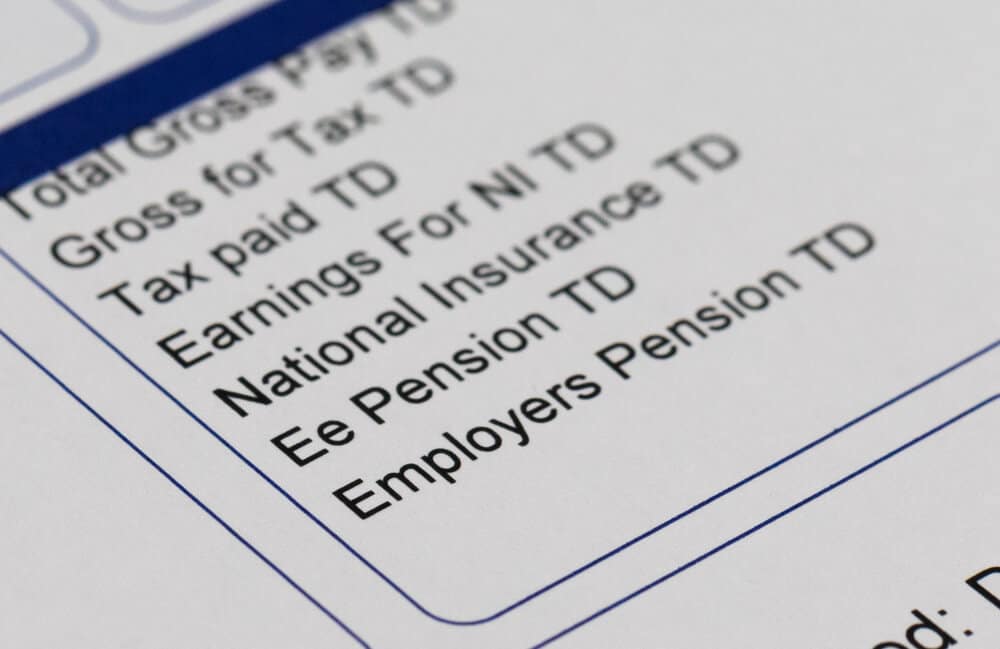If you have outstanding debts, you may have had companies you owe money to mention an ‘attachment of earnings order’.
A quick search about an attachment of earnings will tell you that it’s a way of recovering a debt directly from your wages or benefits.
Understandably, this is quite a worrying idea – so it’s useful to know a little bit more about how these orders work.
In this guide, we’ll explain everything you need to know – including;
- What an attachment of earnings is
- When you might get an attachment of earnings order
- How much could be taken from your wages, and;
- The best ways to avoid an attachment of earnings
We’ll answer some frequently asked questions about attachment of earnings orders too.
This means you’ve got the information you need to decide what your next steps should be – whatever your situation.
What is an attachment of earnings?
Although they can apply to many different debts, when people call us and mention an attachment of earnings order, it often relates to an outstanding council tax bill.
If you’ve fallen behind on your council tax, you may end up being taken to court and issued with a County Court Judgment (CCJ).
If you cannot or do not keep up payments on this CCJ, the council or company you owe money to can go back to court and ask for further recovery action to be taken.
This is where an attachment of earnings order can come into play.
A judge may decide that the only way to force you to pay back what you owe is by taking the money from your employer or benefits before it gets to you.
This method is called an ‘attachment of earnings’ because, until it’s paid off, it’s attached to any payroll information that a company holds about you. The company you work for will have to make payment towards it from your weekly or monthly wages.
Although we’ve used council tax arrears as an example here, attachment of earnings requests can come from any creditor who has previously had a CCJ issued against you. This can include debts like Magistrates’ Court fines, child maintenance arrears, or some credit products.

Why choose YourDebtExpert?
- Write off unsecured debts over £5,000
- Stop interest and charges soaring
- Reduced payments from £85 per month
How does an attachment of earnings order work?
If you’ve fallen behind on money that you owe towards a County Court Judgment, you may get a letter from the County Court telling you that a creditor (a person or company you owe money to) has applied for an attachment of earnings.
They will request that you give the court details about your circumstances and there will sometimes be a form included with the letter that you’ll need to complete and send back.
You’ll usually be asked to include your most recent wage slip too.
If the court decides that the attachment of earnings is the right way forward, they will then get in touch with the person who handles payroll for your employer to set it up.
With the attachment of earnings order in place, the monthly payment you then make appears with tax, national insurance, and pension contributions as one of the deductions that’s made before your money comes to you.
What happens if I can’t afford an attachment of earnings order?
With energy prices going up and the general cost of living increasing, losing a percentage of your income to an attachment of earnings order could be a huge blow. In fact, it’s likely to be enough to make most individuals or families struggle to meet other bills.
This is why you’ll always get a letter from the County Court explaining that a creditor is applying for an attachment of earnings. If you’re worried about affordability, then this gives you a chance to do something about the attachment order before it’s signed off by a judge.
Let’s look at some options:
-
Complete a statement of means form
Although it’s not possible with council tax arrears or Magistrates’ court fines – when other creditors apply for an attachment of earnings order, they have to include an N56 ‘statement of means’ form.
This form gives you a place to complete a personal budget – explaining your incomings and outgoings.
If you cannot afford the amount that’s suggested, the court may help you come to an agreement around a lower percentage or a fixed lower repayment amount.
-
Arrange alternative payment plans
Until your attachment of earnings is in place with your employer, it may be possible to discuss payment terms with the company that’s applied for the order.
If you can come to an agreement about an amount to repay, you may avoid the attachment of earnings order and make a more affordable monthly repayment instead.
How much will I pay with an attachment of earnings?
How much you pay will depend on how much you earn.
If you make less than £300 a month or £75 a week, you won’t pay anything. However, the contribution you make is on a sliding scale after that.
Monthly deductions
If you get your wages monthly, the following information will help you understand how much of your wages will be deducted:
- Over £300 but less than £550 – you’ll have 3% deducted
- Over £550 but less than £740 – you’ll have 5% deducted
- Over £740 but less than £900 – you’ll have 7% deducted
- Over £900 but less than £1,420 – you’ll have 12% deducted
- Over £1,420 but less than £2,020 – you’ll have 17% deducted
- Over £2,020 – you’ll have 17% of the first £2,020 then 50% of the amount above £2,020
Weekly deductions
These figures don’t change if you’re paid weekly – but the following information breaks these numbers down so you can see them at a glance if you’re paid weekly:
- Over £75 but less than £135 – you’ll have 3% deducted
- Over £135 but less than £185 – you’ll have 5% deducted
- Over £185 but less than £225 – you’ll have 7% deducted
- Over £225 but less than £355 – you’ll have 12% deducted
- Over £355 but less than £505 – you’ll have 17% deducted
- Over £505 – you’ll have 17% of the first £505 then 50% of the amount above £505
According to the latest figures, the average salary for all workers in the UK is around £31,000 – which would mean a take-home pay of roughly £2,000. Based on these figures, this would mean a deduction of about £340 each month.
Can the amount I’m paying back change?
Yes. The amount you’re repaying isn’t set in stone based on one payslip.
Instead, it’s calculated by your employer each month and taken from your ‘net pay’ – that’s the amount you actually get in your bank.
Therefore, any bonuses, extra hours, overtime, pay increases, or similar additions will likely increase the amount you’re paying back.
How quickly will an attachment of earnings kick in?
There’s no set timescale for setting up an attachment of earnings. However, the creditor that you owe will usually aim to get it set up quickly – so you should start budgeting for it as soon as you know it’s going to go through.
Don’t worry though; you’ll be informed by the creditor when your first payment will come out, so it won’t be a surprise.

How we helped Paige
It was literally the best decision of my life, and it has actually changed my life, cheesy as that sounds, it has changed my life.
Paige , IVA Customer
Is it possible to stop an attachment of earnings order completely?
There’s an option to ‘suspend’ an attachment of earnings order that you’ll see if you’ve been sent an N56 statement of means form with the attachment notice.
If you tick this, you’ll be prompted to give a reason why you feel the attachment should be suspended. Each reason will be considered based on your individual circumstances.
If the court officer or district judge decides that your order should be suspended, you’ll be told to agree a payment with the creditor and stick to these payments.
If an order is suspended:
- No money will be taken from your wages unless you fail to keep up with the plan that you’ve put in place with the creditor
- No one will inform your employer that an attachment of earnings was being considered
Will an attachment of earnings affect my job?
The answer here depends on the type of job you do. In some roles, financial issues are considered a problem and may mean you cannot carry on doing your job.
This can particularly apply to jobs that include:
- Working with any level of security clearance (including government and military jobs)
- Working with other people’s finances (broker, mortgage advisor, etc)
What happens if I’m off and just getting sick pay?
If you’re currently off work and getting sick pay, there’s a good chance that your income will have dropped significantly.
As your earnings reduce, the percentage that you pay back will almost always reduce too.
You may even find that your income drops enough to mean your employer will stop making deductions from your wage.
This is because of something called the ‘protected earnings rate’. If your income drops below this rate, you cannot have anything further deducted from your income.
Can I get an attachment of earnings if I’m on maternity leave?
The answer here depends. Most attachment of earnings orders cannot take money from statutory maternity pay.
However, if your employer is paying you an amount of contractual maternity pay, then an attachment of earnings order can still be set up.
If you’re not sure exactly how your maternity pay is going to be made up, you should speak to the person responsible for PAYE (pay as you earn) or payroll in your organisation.
Can I organise with my employer to stop making deductions?
If you work for a big company, they will have set policies and procedures around attachment of earnings orders.
However, if you work for a small company, a company you own, or you’re friendly with the company owner, it could be tempting to see if you can be paid by some kind of alternative arrangement, to avoid an attachment of earnings order.
While tempting, you should know that trying to dodge an attachment of earnings order would be a criminal offence. This is because it is a court order.
Any attempt to provide false information or provide details that turn out to be purposefully incorrect could lead to prosecution – both for you directly and for the employer.
Will an attachment of earnings order add to the amount I owe?
Yes, an attachment of earnings order will usually increase the amount that you need to pay back. This is down to the administration costs and court fees that are incurred when a creditor applies for the order and it’s considered by the court.
Can an attachment of earnings take money taken from redundancy payments?
No. If you’re made redundant, any payout you get is exempt from attachment contributions.
Seek debt advice if you’re expecting an attachment of earnings order
If you’ve struggled to keep up with payments that you should be making towards a debt that you have a CCJ for, you could face action that results in an attachment of earnings order.
You’re not alone if you’re facing these kinds of problems – it’s very easy for a couple of missed payments to add up and you to suddenly feel like it’s impossible to catch up.
Rather than waiting for the letter to land, it’s a good idea to seek debt advice sooner rather than later. You’ll be able to explore ways of avoiding the order being brought into force – and you may even qualify for a debt solution and be able to write off a large percentage of what you owe.





